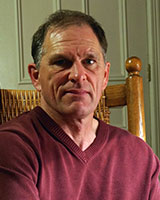Synopsis
Josh Tailor is on a roll. But not a good one.
Josh has been hanging out with the losers. And the cruisers. Swiping lumber for their clubhouse down along the river. Smoking grass. Drinking beer. Stealing Mom’s brand new convertible out of the driveway. Smashing it into a telephone pole. Almost killing himself and several of his buds.
Josh is a good kid… on a bad track.
The Passage–every boy has to make one. Some do it with more success than others.
Josh’s mom is at wit’s end. It’s gotten so bad she actually called her ex, Big Jack Tailor. Big Jack has been estranged from his wife and son for years. Josh sees him, but rarely, and never for long. He hates his old man, but, of course, he also worships Big Jack and secretly longs to be part of Big Jack’s shadowy life.
Big Jack rolls into town and offers to take Josh on a cross country adventure–Jersey to Montana. Big Sky Country. Josh is gung ho to go but Mom says no way. Josh, 15, says he’s going whether she approves or not. Mom relents.
Off they go, father and son. Along the way they encounter cops, Indians, arms dealers, angst, pathos, militiamen, ATF agents, and plenty of trouble.
The trip will change both of them, especially Josh, who will begin to understand what it takes to become a man.
The Passage is a full-bodied American novel, a kind of modern day Huckleberry Finn with Josh in the role of Huck and Big Jack in the role of Jim, a man trying to find and define freedom.
Fathers and Sons, the Open Road, the Wide Open West, the Plains, the Rockies, the difficulties of Love and Truth, the Frailty of the Human Condition–all this rides inside The Passage.
If you’ve read Thomas William Simpson’s novel The Gypsy Storyteller you will enjoy The Passage, an adventure story about loyalty and responsibility and the unbreakable bond between a father and a son.
Author’s View

Many of my novels start out as modern day Huck Finns. And for good reason; not only is The Adventures of Huckleberry Finn one of the great novels in American literature but it more than any other single book inspired me to become a novelist. Or, as I prefer to call myself, a storyteller.
Storytelling is an immensely important component of any culture. It is stories, after all, that define us, give our lives meaning, make us reach for the proverbial stars.
When I was a kid in my early twenties I used to ride around the country on Greyhound buses. You could slap down $99 and be handed a pass that allowed you to ride a bus anywhere Greyhound traveled for thirty days. I would get on in New York City, get off in Miami, get on in Fort Lauderdale, get off in New Orleans, get on in Baton Rouge, get off in Dallas or Los Angeles or Seattle, Washington. It was how I saw the country. And met Americans of every race, creed, and color. It was an education unto itself.
I would take long overnight runs so I could sleep without paying for a room. One night an old black man spent hours telling me about a cross country trip he’d taken with his father back during the Depression. Another night I met a father and his teenage son riding the bus from Kentucky to Portland, Oregon where he hoped to find work in a friend’s father’s lumber mill.
Cross country treks. If you’re an American you should be crossing this great country at least once every decade. More often if you can afford the time. And if not coast to coast at least most of the way across. By car, by train, by bike, by motorcycle. For Americans these are rites of passages.
I’ve been to all fifty states and plan on visiting them all again… with my own kids.
The plot of The Passage centers on the relationship between Josh and Big Jack. But it is the country–the vastness of America–that takes our breath away. America, as you know if you’ve been out to see it, is a country so big and so overwhelming that it can easily swallow you whole.
I was never estranged from my father the way Josh is estranged from Big Jack. But my father was a busy man with many children and his own business, and try though I did, it was tough sometimes to get his attention. I drew on this childhood reality to hone in on the terrible angst that exists between Josh and Big Jack.
Ultimately, as every good novel should, The Passage revealed to me the truth that we share our fears and wants with countless others. We are all in this mess together. We need not suffer in solitude; experience is universal.


